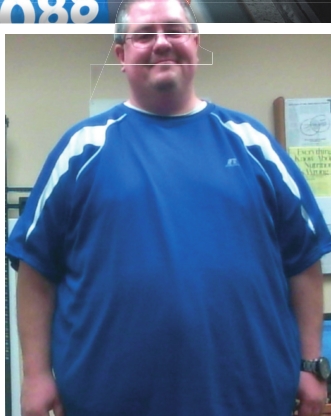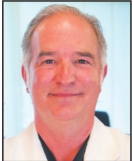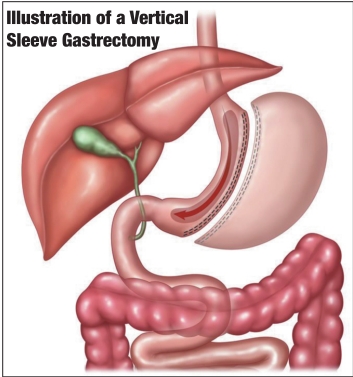LOSING WEIGHT

Freedom from obesity is within reach
Michael Bodine is a high school band director whose incredible weightloss journey has transformed far more than just his body. Bodine lost over 200 pounds with the help of bariatric surgeon Dr. George R. Merriman II and his staff at the Freedom from Obesity Clinic in Shreveport. In the process, Bodine found strength he didn’t realize he had.
Bodine was 41 when he approached Dr. Merriman for revision surgery to convert a previous Lap-Band installed by another doctor to a Vertical Sleeve Gastrectomy. “Everyone is different, and the Lap-Band just didn’t work for me,” Bodine said. “I initially went to Dr. Merriman for maintenance of the Lap-Band.”
Bodine was still struggling with his diabetes and extremely low energy. “I was in regret mode,” he said. “I was almost back to my starting point, pushing 400 pounds, and I was not real happy about it.”
 “Everyone at Dr. Merriman’s office was so helpful,” Bodine said. “It was pretty seamless. That was January, and I had surgery end of March 2014. My wife had it done on Valentine’s Day, and I had it six weeks later. Having her as an accountability partner was such a blessing.”
“Everyone at Dr. Merriman’s office was so helpful,” Bodine said. “It was pretty seamless. That was January, and I had surgery end of March 2014. My wife had it done on Valentine’s Day, and I had it six weeks later. Having her as an accountability partner was such a blessing.”
Bodine no longer has to take his diabetes meds, but it wasn’t easy getting there. “I’m going to be honest, if people are looking for a quick fix, then this might not be for them,” he said. “You’ve got to work at it. You go from living to eat, where you eat all the time, to actually having to schedule when you’re eating and what you’re eating. But hunger changes completely. All of a sudden, you don’t really look at food as this luxury.”
Dr. Merriman has performed over 3,000 bariatric cases. “We’re more than just a surgical weight-loss program,” said Dr. Merriman. “I describe it to patients now as three kinds of pathways that overlap. Think of each pathway as having a certain level of maximum power.”
“The first is medical management,” Merriman said. “We don’t like to use the word ‘diet.’ We use the word ‘menu’ instead. The typical American menu is based on the wrong foods, like grains, cereals and starches. We recommend basically a high-protein menu, with ideal carbs and ideal fats. So medical management includes menu and exercise, and for more severe cases, the addition of weight-loss medications.”
“The second pathway is device-oriented,” Merriman said. “The two highestvolume utilization would be Lap-Band and Intragastric Balloon procedures. The third pathway is surgery, and it has the highest level of power in order of magnitude. What we try to do, because everything we do has risks, is to match the necessary pathway of power while trying to keep risks and side effects at a minimum. The important thing to remember is that people don’t always understand and appreciate the risk of doing nothing, of continuing on the path they are on. Diabetes, sleep apnea and high blood pressure are part and parcel with obesity. So surgery has a greater risk than medication, but it gives a higher level of power.”
“What
we do empowers people to access resources that everybody has, but some
people just can’t reach on their own,” Merriman said. “They have
impediments or obstacles. We are a bridge from where they are to where
they’d like to be.”
“The sleeve is only a tool,” Bodine added. “For people to succeed, they have to work at it. For me, I became a runner. Initially, it was liberating and exciting getting out doing two or three miles. I was never fast but efficient. It was completely empowering running my very first race. When I actually started training for that race, it all changed. The half-marathon – that was really the game changer for me. I started looking at training plans, increasing mileage, buying the right shoes.
Now,
I’ve run 10 half-marathons and two full-marathons. If you had asked me
after the surgery, ‘Are you going to become a runner?’ I would have
laughed at you. Just calling myself a runner and being part of that
community is hard to believe even now.”
Running may have melted fat and strengthened muscle, but the Bodines had other tools on their journey. “Eating rules are a big deal,” Bodine said. “Three years out, the changes that I made were pretty permanent. Portion sizes are different. ‘I’ve got to limit myself’ turned into ‘I actually enjoy those things now.’ With both nutrition and running, your brain will try and trick you, telling you all kinds of things that limit you. The mind is a powerful thing, but the body can overcome anything.”
When Bodine was asked if he had advice for others struggling with obesity, he said, “Dr. Merriman – and I mean this in the most positive way – he shoots you straight. After he talks to you, he’s going to tell you pretty quickly, either you aren’t a candidate or you are, and which procedure you should have. He’s so selfassured because he knows his stuff. I’d tell people to stop struggling and worrying. Make an appointment. Attend a seminar. You’ll know pretty quickly if this is for you or not.”
“People struggling to lose weight have been using food to manage their lives,” Merriman added. “We also help with management techniques and organizational skills. What we offer is a process by which people can become free. It brings with it a fundamental, profound change in habits – and personality. Look at Michael and the life that he was leading before surgery. He is a profoundly different person now. He’s still free to choose, but he’s no longer locked in a box.”
FOR MORE INFORMATION:
For more information, contact the Freedom from Obesity Clinic at 222-3132, or visit www.freedomfromobesity.net.
